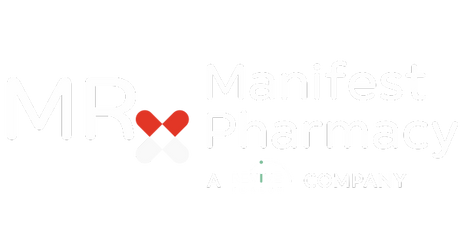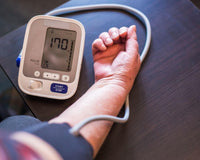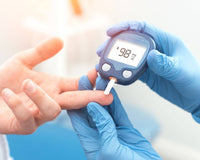Colchicine is a prescription medication used to prevent gout attacks in adults. Gout attacks are exceptionally painful forms of inflammatory arthritis that often occur quite suddenly overnight. In the following short article, we discuss the uses, dosage, side effects and interactions of colchicine. Learn more about this anti-inflammatory drug also used to treat recurrent pericarditis.
What Is Colchicine Used For?
Colchicine is an anti-inflammatory medication used to treat multiple conditions including gout, recurrent pericarditis, and familial Mediterranean fever. Recent research has also revealed that colchicine may be used to treat coronary artery disease in some cases.
Colchicine Brand Name
Colchicine is available as an oral tablet as both a generic and brand name drug. The brand name drug of colchicine is known as Colcrys.
Side Effects Of Colchicine
Colchicine does have some potential side effects. Some are common; others may be serious and less common.
Common Side Effects
The most common side effects of colchicine may include:
- Nausea
- Diarrhea
- Stomach pain
- Vomiting
- Black, tarry stools
- Sore throat
- Hives
- Itching
- Rash
- Peeling skin
- Swelling
- Tenderness
- Headache
- Chest pain
- Cough
If these side effects are mild, they may disappear within a few days. If you have stopped taking your medication and the effects are still present, talk with your doctor or pharmacist.
Serious Side Effects
Some side effects of colchicine are serious and may require medical attention. If you are experiencing any of the following serious side effects, contact your doctor or pharmacist immediately. Call 911 if you think your symptoms are life threatening.
- Bleeding gums
- Blood in the urine
- Burning skin
- Unusual tiredness or weakness
- Muscle weakness
- Numbness
- Fever with chills
- Persisting skin rash or hives
- Stabbing pain
- Tightness in the chest
- Painful or difficult urination
Disclaimer: Here at Manifest Pharmacy, our goal is to provide you with the most relevant and current information. However, because drugs affect each person differently, we cannot guarantee that this information includes all possible side effects. This information is not a substitute for medical advice. Always discuss possible side effects with a healthcare professional who knows your medical history.
How Does Colchicine Work?
When used to treat gout, colchicine works by reducing the inflammation caused by uric acid in the joints. Colchicine is an alternative treatment option for gout attacks for those who are allergic to or cannot take anti-inflammatory pain killers.
How To Take Colchicine
Take colchicine as directed by your doctor. Dosage recommendations for colchicine may vary depending on many factors, including but not limited to the following:
- Your age
- Your weight
- Your condition
Colchicine Dose For Gout
Adult: .6mg 1 or 2 times a day. Dosage may be increased depending on response to the first dose, as well as other factors. Do not increase dosage without first consulting your doctor.
Colchicine Dosage For Treatment Of Gout Attacks
Adult: 1.2 mg at the first sign of a gout attack. Then, .6mg after one hour. Dosage is usually 1.8mg over the span of 2 hours. Do not increase dosage without first consulting your doctor.
Colchicine Dosage For Treatment Of Familial Mediterranean Fever
Adult: 1.2 to 2.4mg given in one or two divided doses per day. Do not increase dosage without first consulting your doctor.
Colchicine For Pericarditis
Colchicine has been proven effective in treating certain forms of pericarditis, although it has not been proven to effectively treat malignancy-related pericarditis or pericardial infusions. The efficacy of colchicine in treating these conditions requires further research before it can be accurately determined.

Pericarditis is an inflammation of a sac-like tissue (pericardium) that surrounds the heart.
Colchicine Interactions
Taking colchicine with certain medications can increase your risk for serious side effects.
Colchicine can cause a serious muscle condition known as rhabdomyolysis. This type of muscle damage can also lead to significant kidney damage. Do not take colchicine along with digoxin, pravastatin, simvastatin, or gemfibrozil.
Colchicine Blood Disorder Warning
Talk to your doctor before taking colchicine if you have a history of blood disorders or high blood pressure. Colchicine may cause your body to produce fewer blood cells. This can raise your risk of infection, bleeding, or serious harm from certain blunt trauma injuries.
Colchicine Muscle Damage Warning
Colchicine can damage muscles if you take it for longer than 6 months. Talk to your doctor before taking colchicine if you currently take cholesterol drugs or other medications known to weaken muscles.
Colchicine Summary
Colchicine is a popular prescription medication used to treat and reduce the severity of gout attacks in adults. It can also be useful in mitigating the symptoms of recurrent pericarditis and Mediterranean fever.
Do not take colchicine if you have a history of blood disorders, stroke, heart attack, or high blood pressure. Colchicine can also cause muscle damage in certain situations.








